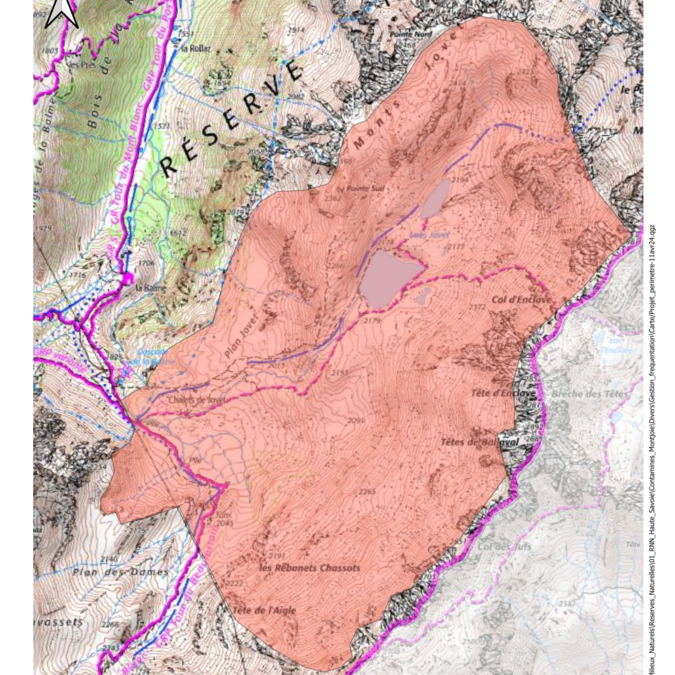The national nature reserve in Les Contamines-Montjoie, a haven of peace and a biodiversity, is home to a fragile ecosystem that must be protected. Faced with the impact of growing visitor numbers, the Contamines-Montjoie town council and the nature reserve trust Asters have joined forces to preserve the integrity of this protected area.
A worrying observation
The constant presence of hikers and campers has led to a significant transformation of the natural environment, particularly in and around the Jovet lake and Plan Jovet pastures. In recent years, camping and swimming have become an absolute must for some visitors, generating noise pollution, litter and improvised toilets, as well as the erosion and degradation of fragile natural habitats. The increase in visitor numbers also entails conflicts of use: grazing cattle, led by a shepherd and protected by sheep dogs.
Concerted action
To ensure a good balance between alpine leisure activities and the preservation of the ecosystem, the town council, the nature trust, local stakeholders and the French government have decided to act. Based on a consensus, a decree has been published to regulate camping and swimming. As a result, bivouacs in and around the Jovet lake and Plan Jovet areas will be strictly prohibited from 1st July 1 to 31st August 2024. Swimming (for hikers and their pets) and all forms of boating in the Jovet lakes will be strictly prohibited year-round.
Responsible alternative solutions
To enable hikers to enjoy natural areas whilst preserving the environment, a new bivouac booking platform will be launched at the end of June. This dedicated website will enable users to locate authorised areas and book their bivouacs responsibly (https://bivouac.nature-haute-savoie.fr). To encourage responsible waste management, the collection points along the GR5 will be removed and collection sites will be set up in various accessible areas in several different valleys, including Les Contamines. At present, the waste collection points across the reserve are regularly overflowing. The risk of littering and pollution is therefore considerable. To avoid this, hikers are asked to take their rubbish to the collection and sorting points in the Contamines and Chapieux valleys.
A call for collective responsibility
By behaving responsibly, visitors actively contribute to the preservation of unique ecosystems for future generations. Camping is forbidden in the nature reserves across the Haute-Savoie region, only bivouacs are tolerated and regulated. To ensure the safeguard of these endangered areas, it is essential to comply to the above rules and regulations.
Click here for more information on these rules and regulations.
About the Contamines-Montjoie nature reserve
The Contamines-Montjoie national nature reserve is managed by the wildlife trust ASTERS CEN74 (Conservatoire des Espaces Naturels de Haute-Savoie). It covers 5,500 hectares and occupies 2/3 of local territory. This reserve, the highest in France, boasts a remarkable diversity of landscapes, from glaciers to meadows, forests and peat bogs, with a difference in altitude of over 2,800 metres. In addition to exceptional panoramas, visitors can observe a variety of wildlife, including emblematic Alpine species such as chamois, ibex and marmot. The reserve is also home to a plethora of alpine flora, with over 760 plant species represented here, some of which are rare and protected. More than 200,000 people visit the reserve each year. It is therefore important to be aware of the fragile nature of this natural environment and the potential disturbance to wildlife caused by visitors.

